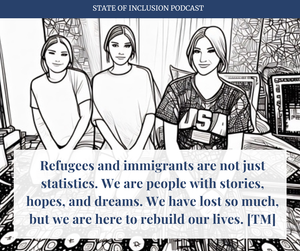Episode 81, 15 min listen
In this episode, I have the pleasure of interviewing two Afghan sisters. They share about the artwork they did for this project and also offer a view into the challenges they and other girls have faced in their home country of Afghanistan. They also offer wisdom about how our community should think about immigrants and refugees, as well as how we can become better allies.
Welcome to this very special series, New Roots, New Voices: Listening to Our Immigrant Neighbors, where we will listen to and lift up the voices and stories of local immigrants here in Greenville South Carolina.
AUDIO PLAYER
You can access this episode wherever you listen to podcasts via our pod.link.
ARTWORK
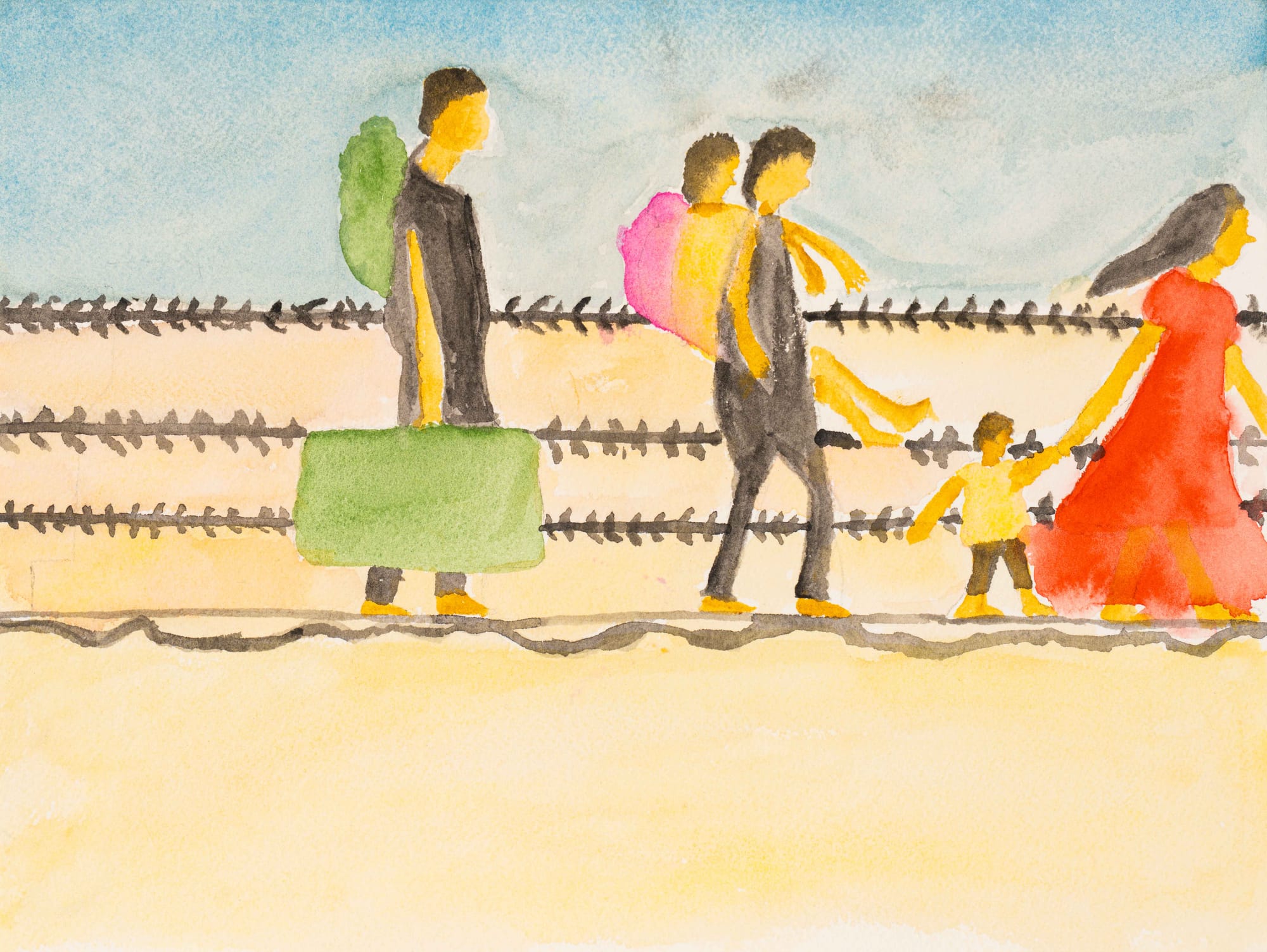
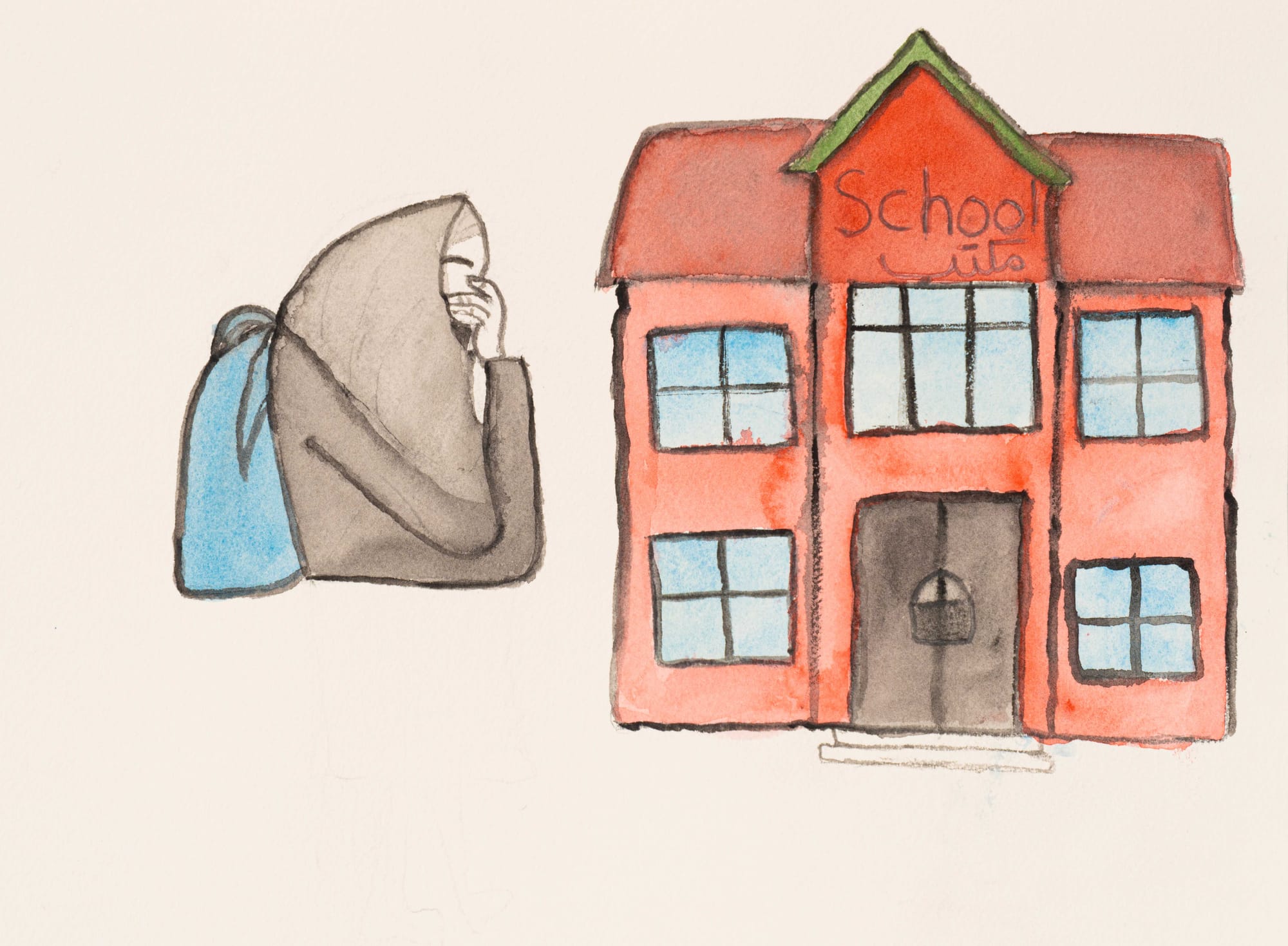
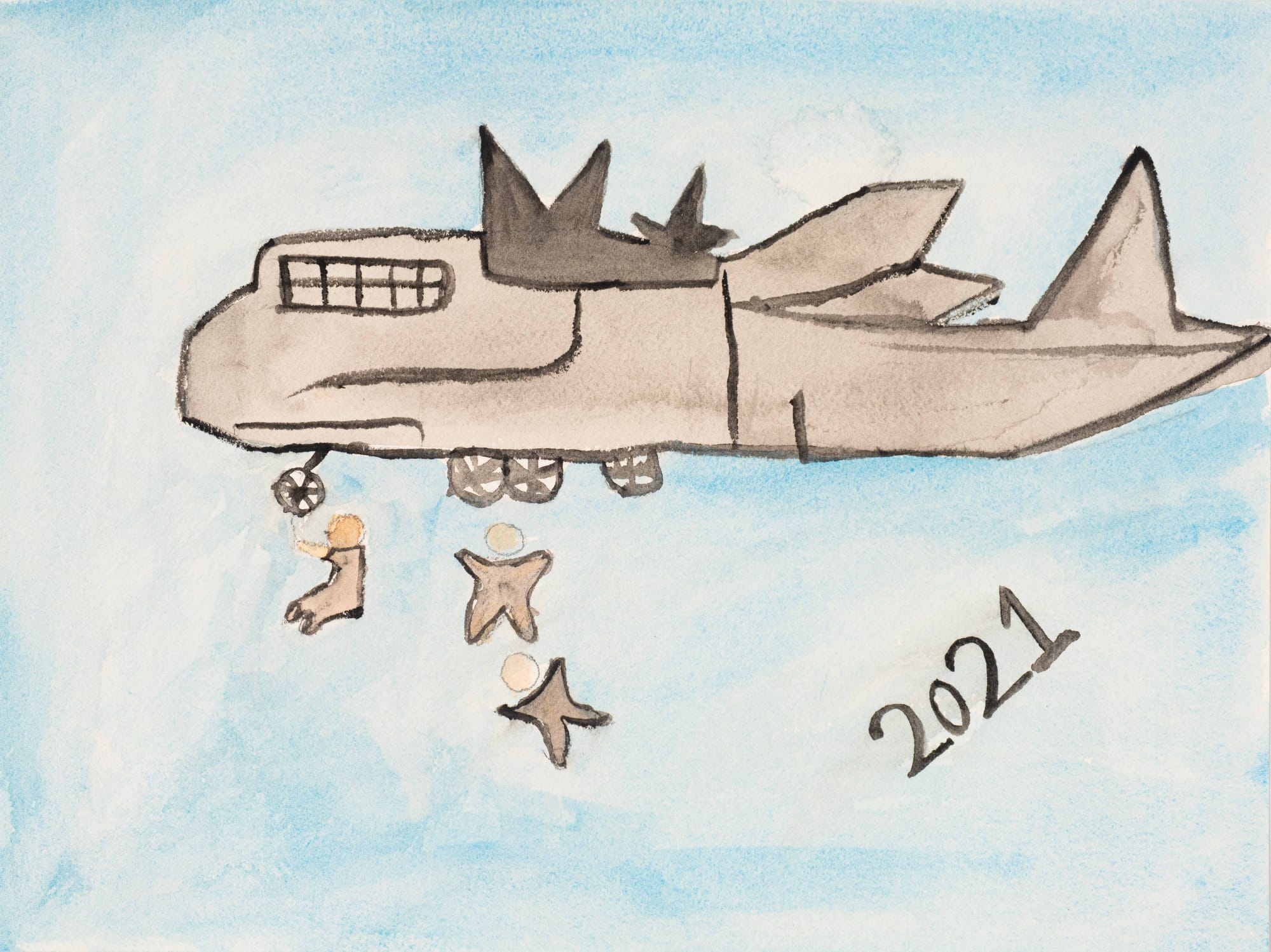
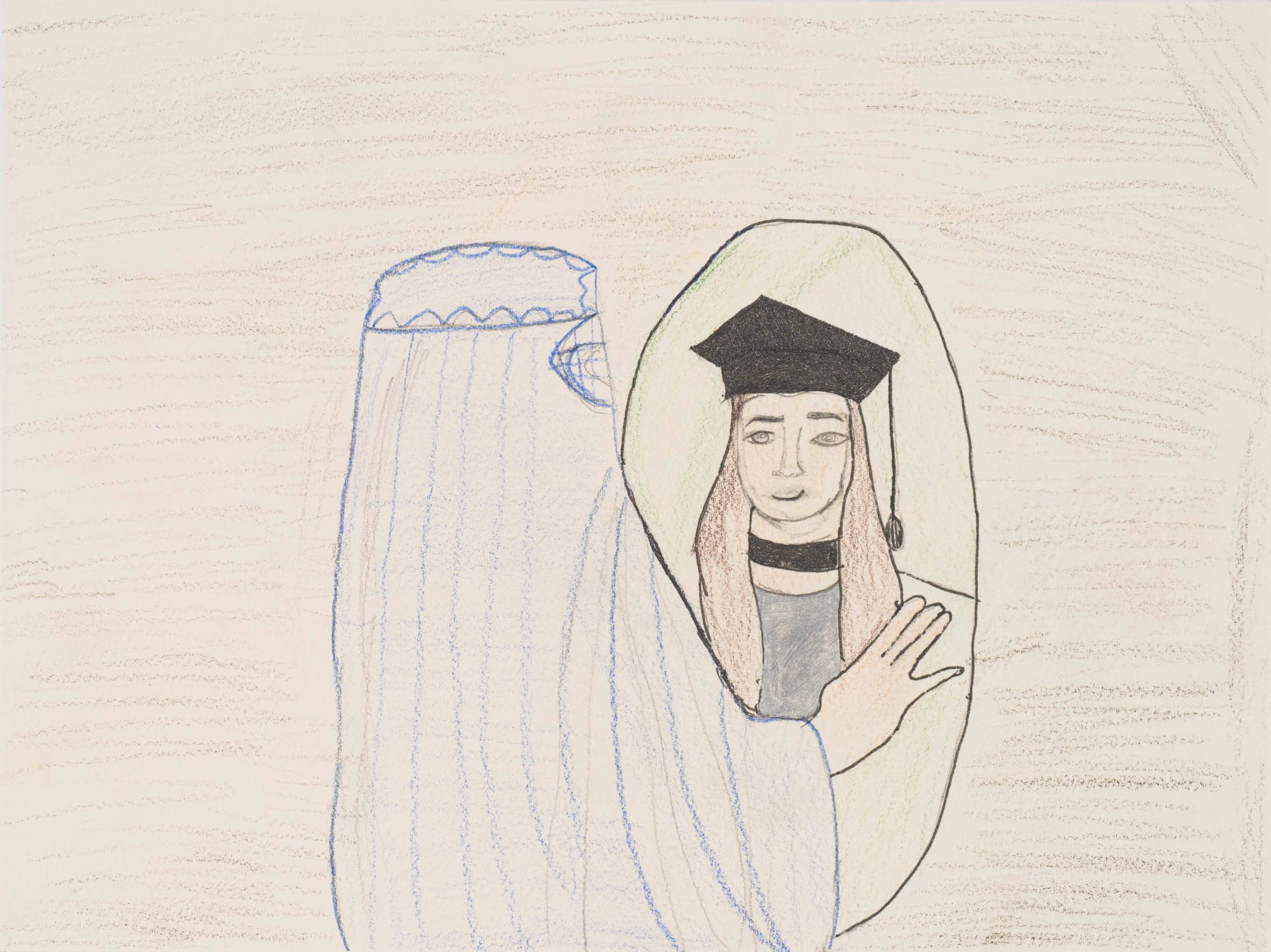
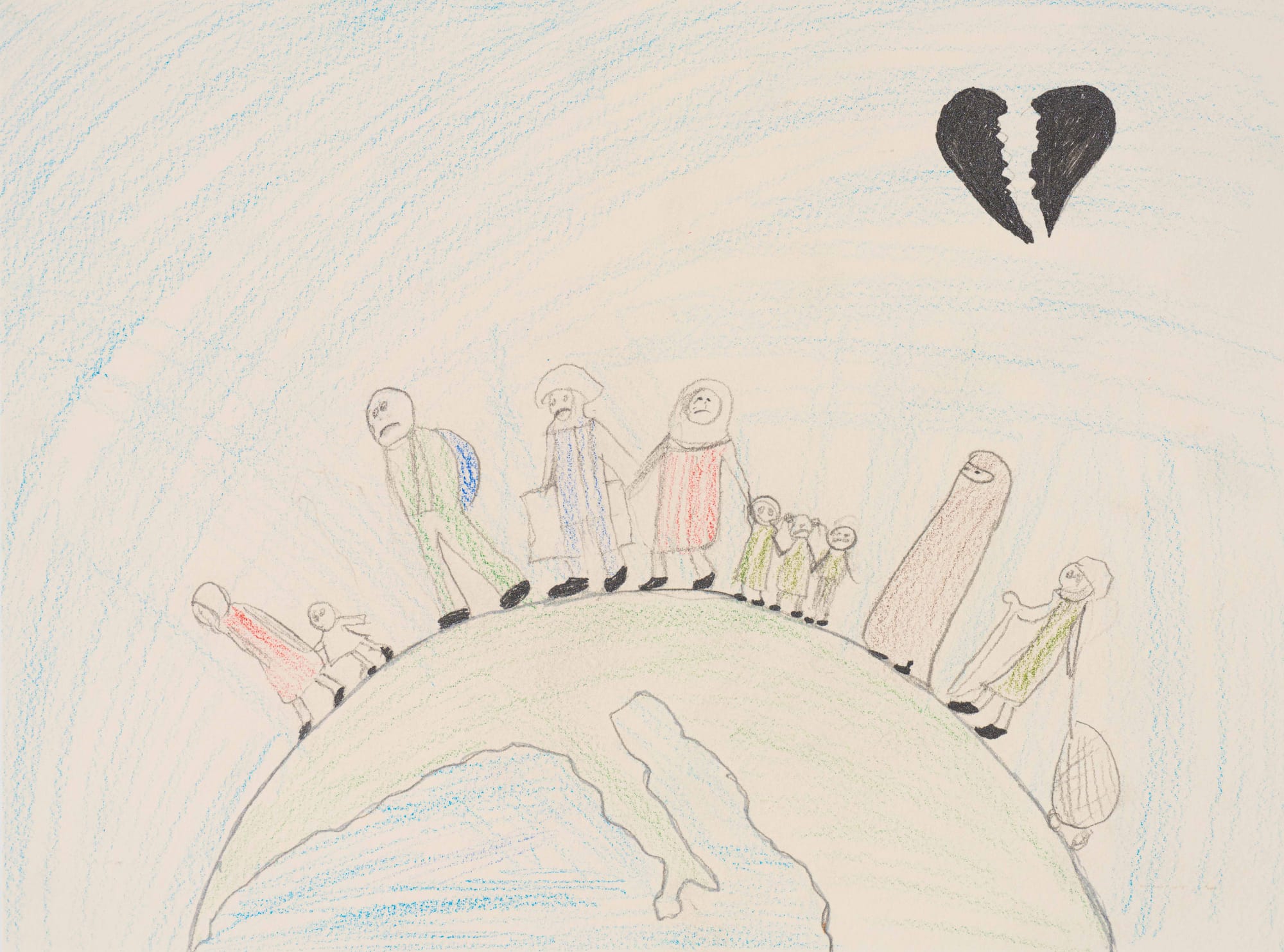
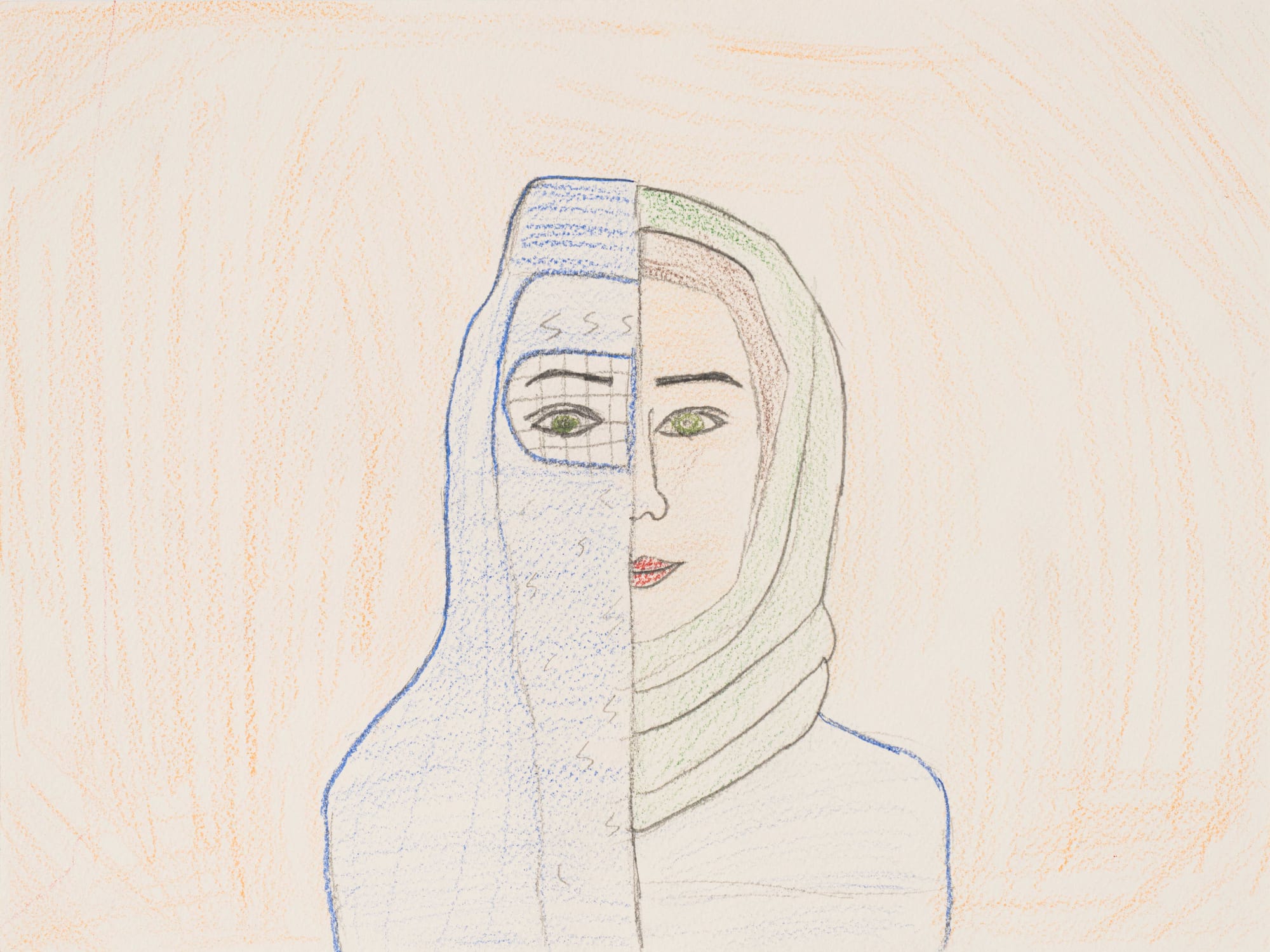
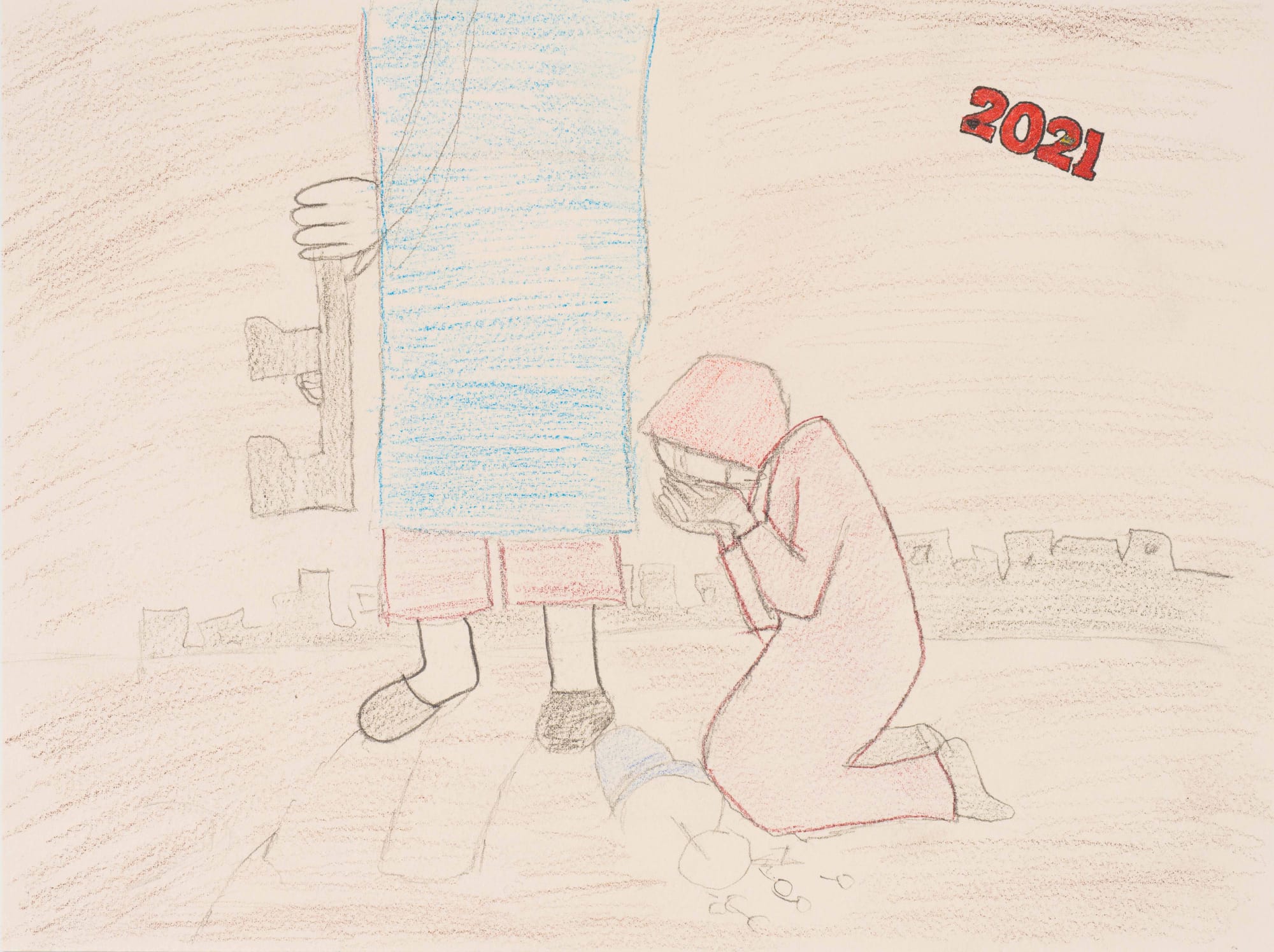
Three pieces of art created by TM and four colored pencil drawings created by NL
ADDITIONAL REFERENCES
Listen to our full immigration justice series here.
SPECIAL THANKS
This immigration series is done in partnership and collaboration with:
- Village Engage
- Greenville Immigration and Faith Coalition
FULL TRANSCRIPT
-Introduction
Ame Sanders 0:10
This is the State of Inclusion Podcast, and I am Ame Sanders. There is a lot in the news every day about immigrants, and a lot of it is negative. What if we went beyond the news? What if we opened our hearts and our minds to better understand the reality of immigrants in our own community? Over the next several weeks, we will listen to and lift up the voices and stories of local immigrants here in Greenville, South Carolina. Along the way, we will meet neighbors, families, friends, local icons, and legends. We will come to some of the challenges our immigrant neighbors face, and how we can become better allies. Welcome to this very special series, New Roots, New Voices: Listening to our Immigrant Neighbors.
As I mentioned in the previous episode, thousands of people have been forced to flee from Afghanistan in the year since the Taliban took control of their country’s government. Through refugee settlement, some of them have become neighbors in communities across the country, including right here in Greenville. In this episode, we have the honor to meet two youth from a local Afghan family. My colleague Wendy and I made an initial visit to meet the family, including the parents. While seated on plush cushions around the living room, talking with the parents, we were served cookies and small bites along with delicious green tea in delicate china cups. As we talked, their elder daughters worked smoothly together in the small kitchen to prepare a beautiful meal of eggplant, potatoes, bread, and yogurt. We continued our conversation as we ate together, gathered around a large tablecloth spread directly on the floor.
Our second trip was to capture the stories. The children welcomed us with a charming combination of shyness, inquisitiveness, and exuberance. We ended up recording two of the sisters as their mother and several siblings watched on. Afghan hospitality and generosity continues to amaze me. That day, in addition to leaving with beautiful stories and artwork, their mother made sure I also left with a bag of their precious green tea, imported directly from Afghanistan.
So, let’s meet the girls.
-Interview with TM
First, we will hear from TM, the second in age from the oldest.
TM 2:38
I’m from Afghanistan, and the city of Kabul, and I have six sisters and one brother, and my dad and my mom. We are 10 in family.
Ame Sanders 2:49
Tell me about your roots.
TM 2:51
My roots are from Afghanistan. My roots are deep and I had a loving family, friends, and community that they knew me. When the situation changed, I had to leave Afghanistan and then come here to the United States and make new roots in Greenville.
Ame Sanders 3:12
So, maybe you can tell me about what home means to you and how you think about home today.
TM 3:18
Home is where our heart is, which, my heart is Afghanistan. And where our loved ones are. Right now, my family and I are rebuilding our lives here and making a new home here for a better future.
Ame Sanders 3:37
You’ve had a big journey and a lot of changes in your life for a young woman. So, what is something that you’re most proud of? Something that you’ve accomplished or you feel really good about?
TM 3:47
Looking back, one of the hardest things was leaving Afghanistan, and then that changed my life when I came here. At the camp that we were at for like three months, I had to teach students, like kids, English. And I got a certificate from the army, and they gave me something to make me proud of myself. For three months, for kids, English the first level, I taught them. Then that one that certificate that I got. In that time I learned that’s something that people should know about me.
Ame Sanders 4:28
Yeah. So, you’re young. You’ve already been a teacher of other people.
TM 4:32
Yes, when I arrived here in the US, I taught the kids English at the time in Indiana, the city
Ame Sanders 4:46
So, you’ve already been serving and helping others. So, how old are you?
TM 4:48
I am nineteen.
Ame Sanders 4:51
Nineteen. Okay, that’s a lot to have done already.
TM 4:52
Yeah, I’ll be 20 this November.
Ame Sanders 4:53
This so if we look forward into the future, tell me something that you hope or that you dream about for yourself or for your family.
TM 5:05
I hope for a better future for myself and my family. I want to be a doctor or a nurse in the future. I’m trying my best to achieve this.
Ame Sanders 5:16
So, what do you think that other people in the US need to know about immigrants or refugees or asylum seekers that have come to the US?
TM 5:25
For those who are already here, I wish they knew that refugees and immigrants are not just statistics. We are the people with the stories, hopes, and dreams. Then, we have lost so much, but we are here to rebuild our lives.
Ame Sanders 5:48
What thoughts or suggestions do you have for people to become better neighbors and better allies?
TM 5:57
I think y’all did so much for us, but things like if you provided an interpreter for those who don’t speak English.
Ame Sanders 6:09
Like language support?
TM 6:10
Yeah, language support. Medicare. Something that they need at the first year of their life until they learn a little bit of language and maybe get a license and make these things.
Ame Sanders 6:24
So, helping people get started at the very first year so they get a good start. Is there anything that I haven’t asked you about your story or about the things that you’ve experienced that you want to tell me or you want to share?
TM 6:39
Girls can’t go to school in my country. They cannot work. They cannot go outside without a man. But I want, I want them people that hear my voice I want them to stand for them and help them to have lives like here that the girls have.
Ame Sanders 7:02
And what is it about the life here that you want them to have?
TM 7:05
We have a lot of opportunity here. We’re going to school, college, work, have fun with friends like at the park. But they’re just sitting at home and thinking about these opportunities that we have.
Ame Sanders 7:19
That was beautiful. Thank you. Tell us about the artwork that you did.
TM 7:25
Okay. This is the airplane and these is the people that were holding the tire of the airplane because they wanted to escape from Afghanistan for a better life. They wanted to come to the US in 2021. They were sitting there at the top of the tire of the airplane and then when the airplane like went up and then they fell down.
Ame Sanders 7:59
They fell off. So, it’s a picture of people falling from the bottom of the airplane. Oh my. That is very powerful.
TM 8:05
This one is the picture of my family. At11 PM at night the people that were helping us to come to US, they called us at night and said you have to be ready in like 10 minutes and come to the airport. So, this is my uncle holding the bag and the box that we had. This is my dad, my brother, and my mom, and my sister and we were heading to the airport to leave the country.
Ame Sanders 8:45
Wow. Thank you.
TM 8:46
This one is the school. This is the girl crying because the Taliban because when they took over Afghanistan they closed the school. So, they didn’t let the girls go to school. So, we didn’t know that we would not have school, but when she went to school or I went to school we saw the lock on the door that said you cannot enter the school anymore.
Ame Sanders 9:15
So you went to school one morning and the door was locked and you couldn’t go in? And you weren’t allowed to go again?
TM 9:23
I was in ninth grade. Or tenth. It was at the start of 10th grade.
Ame Sanders 9:27
So you were nearly finished with school. Wow, okay. Thank you. Those are beautiful. Those are really beautiful.
-Interview with NL
In this portion, we’ll hear from LL.
NL 9:47
I have six sisters and one brother, my mom and my dad. So I’m in a family of ten.
Ame Sanders 9: 49
Which one are you in the order?
NL 9:51
I’m the fifth one.
Ame Sanders 9:53
The fifth one. So how old are you?
NL 9:56
I am fourteen.
Ame Sanders 9:57
Can you tell me a little bit about your roots and also about how you came to put roots down in Greenville?
NL 10:06
My roots are from Afghanistan, and I decided to put down new roots in Greenville because they have kind people, and I want the weather. I like everything about it.
Ame Sanders 10:18
If you are looking forward, what are some of the things that you hope for or dream for, for yourself or for your family?,
NL 10:29
I hope for my family like health, and for myself, I want to be a lawyer in the future, so that’s what I hope for myself.
Ame Sanders 10:38
Tell us about the art that you’ve done. I’ll include pictures on the website of course, but I want you to tell us about what you’ve drawn.
NL 10:47
So, I drew this picture like a woman to see herself in the mirror. So, this is what all the girls experience in Afghanistan right now. They cannot go to school and stuff, so I drew this about that.
Ame Sanders 11:01
So, it’s a picture of a woman in a burka, and she’s looking in a mirror.
NL 11:07
Yeah, she’s seeing herself graduating from school, but she cannot do that.
Ame Sanders
She cannot do that. Right.
NL 11:12
And I draw this, this is what I experienced.
Ame Sanders: 11:18
So, it’s a picture of the globe or the Earth.
NL 11:23
Yeah. And this is a family, and they are leaving their country and going to another country.
Ame Sanders 11:27
So, it’s a picture of people traveling across the top of the globe as they move across the Earth to their new home. Lovely. What else have you drawn?
NL 11:37
I drew this picture–a girl wearing the burka because now she cannot show her face.
Ame Sanders 11:48
Right. Okay, beautiful. And this one?
NL 11:53
She’s crying because she wants to go to school, but the Taliban don’t let them to go.
Ame Sanders 12:02
And the person she’s crying in front of is holding a gun?
NL 12:03
Yeah.
Ame Sanders 12:04
Yeah. Those are beautiful. Thank you.
NL 12:05
Thank you.
-Conclusion
Ame Sanders 12:07
The girls had prepared carefully for my questions, and with simple and direct language, they shared so much. As a podcaster, my work is all about the spoken word. Still, it’s times like this that I’m reminded that all the words in the world often cannot match the impact and power of a single simple drawing because it’s through their art that we were able to touch some of the deeper and more emotional parts of their stories.
It’s in this interview and the previous interview with the Afghan children that I am especially struck by the bravery and generosity of their parents: their willingness to let me, a complete stranger, into their home, to allow their children to speak up to share their stories and their art with us. We cannot take for granted this public sharing of intimate and personal stories with so many strangers.
There are risks these days in becoming visible and in sharing. Still, these parents have done what all wise and brave parents do every day when presented opportunities for their children–they weigh the risks, they quiet their own fears and they allow their children to step into moments of growth and opportunity. In this case, it is the opportunity for their children to claim some of the new freedoms that they have all given up so much to secure. Especially for these girls from Afghanistan, it is the freedom to be seen and heard, to speak out for themselves and others, and to give voice to the dreams they can now have for their future.
This has been the State of Inclusion podcast. If you enjoyed this episode the best compliment for our work is your willingness to share the podcast or discuss these ideas with others. Also feel free to leave us a review or reach out. We love to hear from you and join us for the next episode in this very special series New Roots, New Voices: Listening to Our Immigrant Neighbors.
CONTRIBUTORS
Guest: For their safety, we are only identifying the sisters as TM and NL.
Host: Ame Sanders
Social Media and Marketing Coordinator: Kayla Nelson
Podcast Coordinator: Emma Winiski
Sound: Uros Nikolic


